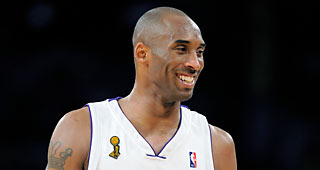Money talks.
How loud? We may see soon enough.
It has already screamed loud enough at the likes of Josh Childress and Earl Boykins, mid-tier, American-born NBA players who have left the league for Europe.
Childress, a significant player for the Atlanta Hawks during their upstart playoff run last season, left for a three-year deal worth about $20 million after taxes.
The deal was approximately 5-8 million more than he would have received here.
Boykins signed a one-year, $3.5 million deal in Italy after receiving little interest from NBA clubs despite being an instant offense guard with shooting range.
Those two don?t even include Carlos Arroyo (formerly of the Orlando Magic), Nenad Krstic (New Jersey), Carlos Delfino (Toronto), and Jorge Garbajosa (Toronto).
Krstic was a starting center for the Nets just a year ago after suffering an ACL injury.
Reports had Krstic seeking a two-year deal starting at $5 million a year, but no NBA team was willing to oblige, wary of his slow comeback from the injury last season.
Krstic opted for a deal in Moscow that will pay him $9 million a year in United States' money.
Arroyo, Delfino, and Garbojosa played key roles off the bench for their respective teams ? both of which were playoff participants ? yet found the finances more accommodating overseas.
?Ultimately, it?s about money,? Hawks' General Manager Rick Sund told the Associated Press following the Childress signing. ?The more money they get, the better they feel about the commitment.?
The mass exodus of NBA talent this offseason has brought up the issue of whether European teams will eventually make bigger splashes.
And the answer is yes. From this offseason alone, NBA players are becoming more and more intrigued with the possibility.
The attraction? Well, for starters, European leagues boast no salary cap. The NBA, on the other hand, is restricted by the luxury tax, which NBA team officials fear.
Agents feel that once the leagues overseas rectify their issue of guaranteed contracts ? there?s no players? association or collective bargaining agreement in Europe ? then the option of players such as Kobe Bryant, Dwanye Wade, and LeBron James ? who is rumored to be offered as much as $40 million a year once he becomes a free agent in 2010 ? becomes more and more likely.
The bottom line is the money is greater. James, for instance, could not be offered more than $20 million under the NBA?s current collective bargaining agreement.
?You never know,? James told reporters at Team USA?s media briefing Friday. ?I can?t just throw all my eggs in one basket. There?s going to be a lot of opportunities for me in 2010 to decide if I want to stay with Cleveland or if I want to go elsewhere. Could I ever imagine it? No. Is it a possibility? Yes.?
Apparently, others are starting to fall in line.
?What would you do?? Hornets' guard Chris Paul said. ?Show me a person that?s not going (to take the money)... maybe Bill Gates.?
Said agent Mark Bartlestein, ?The European market has been growing year by year, and it?s certainly been a hope of ours that it would become a viable alternative for players.?
Is it possible that James could don the jersey of Italy? What about Bryant, who said earlier this week that he will not sign a contract extension with the Lakers until he tests the European market, wearing the threads of Moscow?
It may not be as threatening as many may think, but the option is there. And it can be assured that Euro leagues are readying for when the ?big dogs? of the NBA get on the market so they can make a run at them.
They were thrown a big bone as soon as Childress and Boykins signed on the dotted line.
After all, for Bryant and James, where image is everything, it?s very likely they could choose to spend a few years overseas to broaden their names and globalize their respective brands.
Every time NBA players go overseas for preseason contests, or even for this year?s Olympics, they witness first-hand the love and admiration they receive from the public; the same adoration they fail to get wholeheartedly from their American audiences.
If anything, the potential of the situation applies pressure to the NBA, which is still the stepchild to the NFL and MLB and desperately needs the star power.
By all accounts, however, NBA officials are not sweating over the recent turn of events.
They cite the quality of competition and the fact that the NBA is, well, home as reasons they think the likes of James and Bryant would decide otherwise.
Perhaps. Maybe this is all ado about nothing.
But the NBA, or even James or Bryant, could nip the problem in the bud by laughing it off, noting the ridiculousness of it all.
But perhaps that?s just it as well.
It?s not as ridiculous as some might think.


